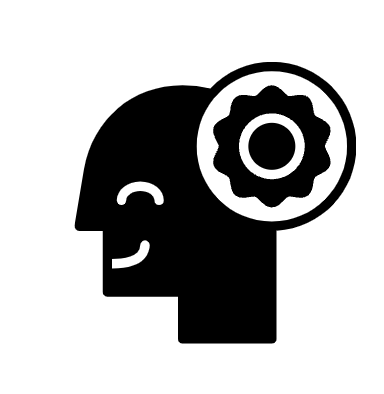
Table of Contents
The marketing landscape has fundamentally changed - what once required teams of specialists can now be automated by artificial intelligence. The growing tension between traditional agency models and AI-powered alternatives presents a key question many businesses face today: when to choose human expertise versus algorithmic efficiency. This decision significantly impacts ROI, time investment, and results.
The Current State of Marketing Agencies
In today’s digital landscape, the current state of marketing agencies reflects both significant evolution and persistent challenges. As businesses increasingly prioritize online visibility, understanding how these agencies operate and where they excel—or fall short—becomes crucial for companies evaluating their marketing partnerships.
How Traditional Agencies Structure Their SEO Services
Most marketing agencies approach SEO through tiered service models, typically offering packages ranging from basic optimization to comprehensive strategies. The current state of marketing agencies shows they generally divide their SEO services into three core components: technical optimization, content development, and link building.
Agencies typically employ specialists in each area, operating in department silos that collaborate on client campaigns. This compartmentalized approach allows for expertise concentration but can create disconnects in strategy implementation. Many agencies bill according to hourly rates or retainer models, with most requiring 6-12 month commitments before meaningful results can be measured.
Agency Strengths: Strategic Thinking, Creative Problem-Solving, and Relationship Building
Where the current state of marketing agencies shows clear value is in their strategic capabilities and creative problem-solving. Experienced agencies bring valuable perspective from working across multiple industries and solving diverse marketing challenges.
Their greatest strengths include:
- Cross-industry insights that inform strategy development
- Creative approaches to competitive markets
- Relationship-based outreach for link building and partnerships
- Adaptability to algorithm changes and industry shifts
These agencies excel at building personalized relationships, understanding brand voice, and developing custom strategies that align with specific business objectives. The human element remains their most compelling advantage in an increasingly automated world.
Common Pain Points: Cost Structures, Communication Delays, and Scalability Issues
Despite their strengths, the current state of marketing agencies reveals persistent challenges. Clients frequently encounter frustrations with:
- High costs with unpredictable ROI timelines
- Communication delays between strategy approval and implementation
- Difficulty scaling services to match business growth
- Limited transparency into work processes and performance metrics
The traditional agency model often creates bottlenecks where client requests pass through account managers, strategists, and finally to specialists—a process that can delay crucial optimizations. Additionally, the same retainer structure that ensures agency stability can limit flexibility for businesses with shifting priorities or seasonal needs.
The Rise of AI in Marketing and SEO
In today’s digital landscape, the rise of AI in marketing and SEO is transforming how businesses approach organic growth strategies. As algorithms evolve and customer expectations shift, artificial intelligence has moved from experimental technology to essential infrastructure for competitive marketing operations.
Overview of AI Capabilities in Modern Marketing Workflows
The rise of AI in marketing and SEO is most evident in how it streamlines complex workflows. AI systems now efficiently manage interconnected tasks that once required multiple team members and tools. These intelligent systems can simultaneously analyze technical site performance, track competitor strategies, and generate content optimized for both search engines and human readers.
Modern AI doesn’t just execute tasks—it learns and improves. By continuously processing performance data, these systems identify patterns and optimization opportunities that might escape even experienced marketers. For content creation specifically, AI can now produce nuanced, contextually relevant material that addresses user intent while maintaining brand voice guidelines.
Key Advantages: 24/7 Availability, Data Processing Capabilities, and Cost Efficiency
The competitive edge of AI in marketing and SEO comes from three primary benefits. First, AI operates continuously, monitoring site performance, tracking rankings, and identifying opportunities around the clock. This constant vigilance ensures no critical issues or opportunities are missed.
Second, AI’s data processing capabilities far exceed human capacity. Modern algorithms can analyze millions of data points across competitor sites, search trends, and user behavior to identify actionable patterns. This depth of analysis enables more precise strategy development and execution.
Third, AI significantly reduces operational costs. By automating routine tasks like keyword research, content optimization, and technical audits, businesses can redirect human talent toward strategic thinking and creative problem-solving—the areas where humans still maintain a decisive advantage.
Areas Where AI Excels Over Human Teams
The rise of AI in marketing and SEO is particularly pronounced in technical execution. In technical SEO audits, AI systems can comprehensively analyze thousands of pages, identifying issues like broken links, duplicate content, and mobile rendering problems with perfect accuracy and consistency.
For keyword research, AI seamlessly processes search volume data, competitive difficulty, and semantic relationships between terms to identify high-opportunity targets. This process, which might take a human team days to complete, can be executed in minutes with greater precision.
In content optimization, AI excels at balancing SEO requirements with readability metrics. Modern systems can suggest adjustments that improve keyword targeting without compromising the natural flow that human readers expect.
Comparing Performance: Agencies vs. AI Solutions
When evaluating the path forward for your SEO and content strategy, understanding the performance differences between traditional agencies and modern AI solutions becomes critical. Let’s examine how these two approaches compare across several key dimensions.
Cost Analysis and Typical Investment Requirements
Traditional agency relationships typically operate on retainer models ranging from $2,500 to $10,000+ monthly, with minimum commitments of 6-12 months. This significant investment often includes account management overhead and agency profit margins. Comparing performance: agencies vs. AI solutions reveals that AI platforms generally offer more predictable pricing models, typically between $500-$2,000 monthly with fewer long-term commitments. This represents substantial cost efficiency, particularly for growing businesses.
The financial flexibility extends beyond the base fees. Agencies frequently charge additional fees for expanded scope or rush projects, while AI solutions tend to offer fixed pricing with scalable capabilities built in. For resource-conscious marketing teams, this predictability provides valuable budgeting advantages.
Speed and Efficiency Differences in Implementation and Execution
Time-to-value presents another critical dimension when comparing performance: agencies vs. AI solutions. Agency workflows follow traditional cycles—strategy development (2-3 weeks), content production (1-2 weeks per piece), and reporting (end of month)—creating inherent lag times. AI solutions compress these timelines dramatically, often enabling same-day audits, content creation within hours, and real-time performance tracking.
This efficiency gap becomes particularly pronounced for companies needing to:
- Respond quickly to market changes
- Scale content production rapidly
- Implement technical SEO improvements promptly
Quality and Customization Capabilities: Where Each Option Delivers Best Results
When comparing performance: agencies vs. AI solutions, quality considerations deserve careful attention. Agencies excel in highly specialized industries requiring deep subject expertise and complex creative campaigns. Their human-centered approach brings strategic creativity and relationship-based value.
AI solutions demonstrate superior performance in data-driven decision making, consistency across large content volumes, and integrated workflow management. While early AI had limitations in nuance, modern systems offer impressive customization capabilities through:
- Training on company voice and style guidelines
- Integration with existing content systems
- Adaptation to specific industry terminology and requirements
The choice ultimately depends on your specific needs for creativity versus consistency, personalized service versus scalable systems, and budget flexibility.
Building the Optimal Strategy: When to Choose Which Option
Developing an effective SEO approach requires strategic decision-making about when to leverage human expertise versus AI automation. Building the optimal strategy means understanding which option serves your specific needs at different stages of your growth journey. Let’s explore the key considerations that should inform these crucial choices.
Business Size and Resource Considerations
When building the optimal strategy for your organization, scale and available resources significantly impact your approach. Small businesses with limited budgets often benefit most from AI-powered solutions that provide comprehensive capabilities without requiring multiple specialists. These tools can deliver consistent results while keeping costs predictable.
Mid-sized companies typically find themselves at a crossroads when building the optimal strategy. With growing needs but constrained resources, they might adopt a progressive implementation approach—starting with automating technical audits and keyword research while gradually expanding into content creation as confidence in the system builds.
Enterprise organizations with established marketing departments face different challenges. Their optimal strategy might involve using AI to handle repetitive, data-intensive tasks while directing human experts toward high-value creative work and strategic planning. The efficiency gained from building the optimal strategy this way allows teams to focus on complex competitive analysis and brand positioning.
Industry-Specific Factors Influencing Decisions
Different sectors face unique challenges that impact the optimal balance between human and AI contributions. Highly regulated industries like healthcare, finance, and legal services require careful consideration when building the optimal strategy due to compliance requirements and terminology precision. Human oversight remains essential, though AI can still handle initial drafts and research.
E-commerce and retail businesses benefit from AI’s ability to generate product descriptions at scale while maintaining SEO best practices. When building the optimal strategy in these industries, consider how quickly your product catalog changes and the level of customization customers expect in your messaging.
Content-driven industries like media and publishing require a nuanced approach. Building the optimal strategy here often means using AI for research and structure while preserving the distinctive voice that builds audience loyalty through human creative input.
Implementing a Hybrid Approach
The most successful organizations recognize that building the optimal strategy rarely means choosing exclusively between human or AI solutions. A thoughtfully designed hybrid approach leverages the strengths of both.
Start by mapping your workflow and identifying which tasks are repetitive, data-intensive, or require minimal creative judgment. These are prime candidates for AI automation when building the optimal strategy. Reserve uniquely human abilities—like understanding cultural nuances, emotional intelligence, and strategic creativity—for tasks where they add the most value.
Establish clear handoff points between AI and human team members. For example, AI might generate initial keyword research and content outlines, while human writers add depth, expertise and brand voice. Regular reviews help refine this balance as your needs evolve, ensuring your approach to building the optimal strategy remains effective over time.
Conclusion
Summary of key considerations when choosing between agencies and AI. The right choice depends on specific business goals and constraints.
Ready to transform your organic marketing strategy? Consider exploring AI-powered solutions like Creator that combine the best of both worlds.



